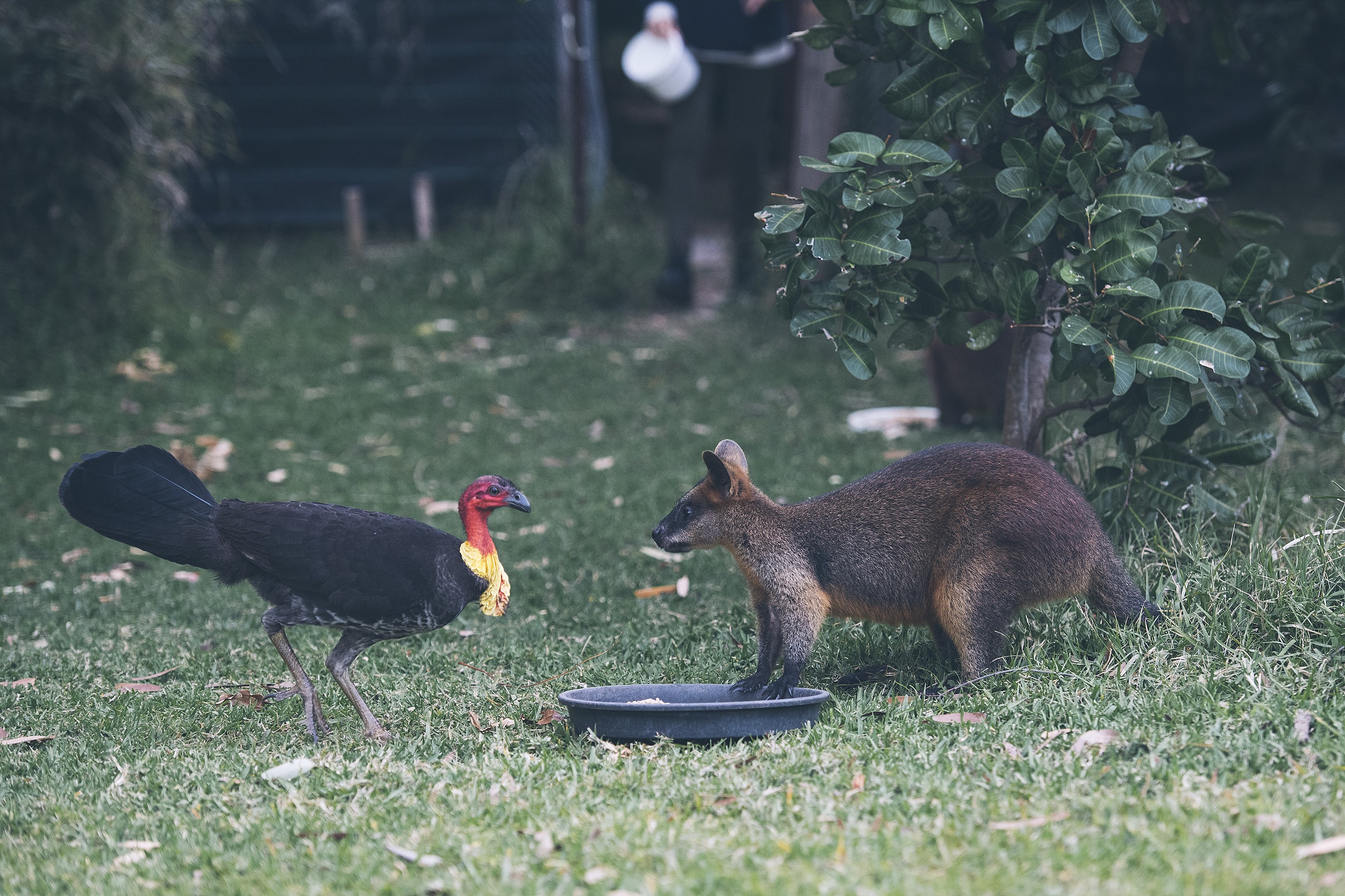Annie Crowley is Chair of the Northern Rivers branch of WIRES (one of Australia’s largest wildlife rescue organisations) and a wildlife carer with the organisation. Her love for nature has seen her turn her home in Byron Bay, into a refuge for injured, orphaned, or displaced wildlife.
After 25 years in the corporate world, Annie relocated from Sydney to Byron Bay to give back to her community. It was through volunteering for WIRES that she discovered her love for wildlife and the Australian bush, and has been involved for the past eight years.
“I’ve got six Wallabies visiting that were released four or five years ago,” says Annie. “They have often come back with little ones in their pouches. I think they know it’s a safe place.”
WIRES has over 2500 volunteers across 28 branches in NSW and received 95,000 requests for assistance, rescuing tens of thousands of animals in the last financial year. The Northern Rivers Branch has over 185 volunteers, drawn from across this biodiversity ‘hot spot’.
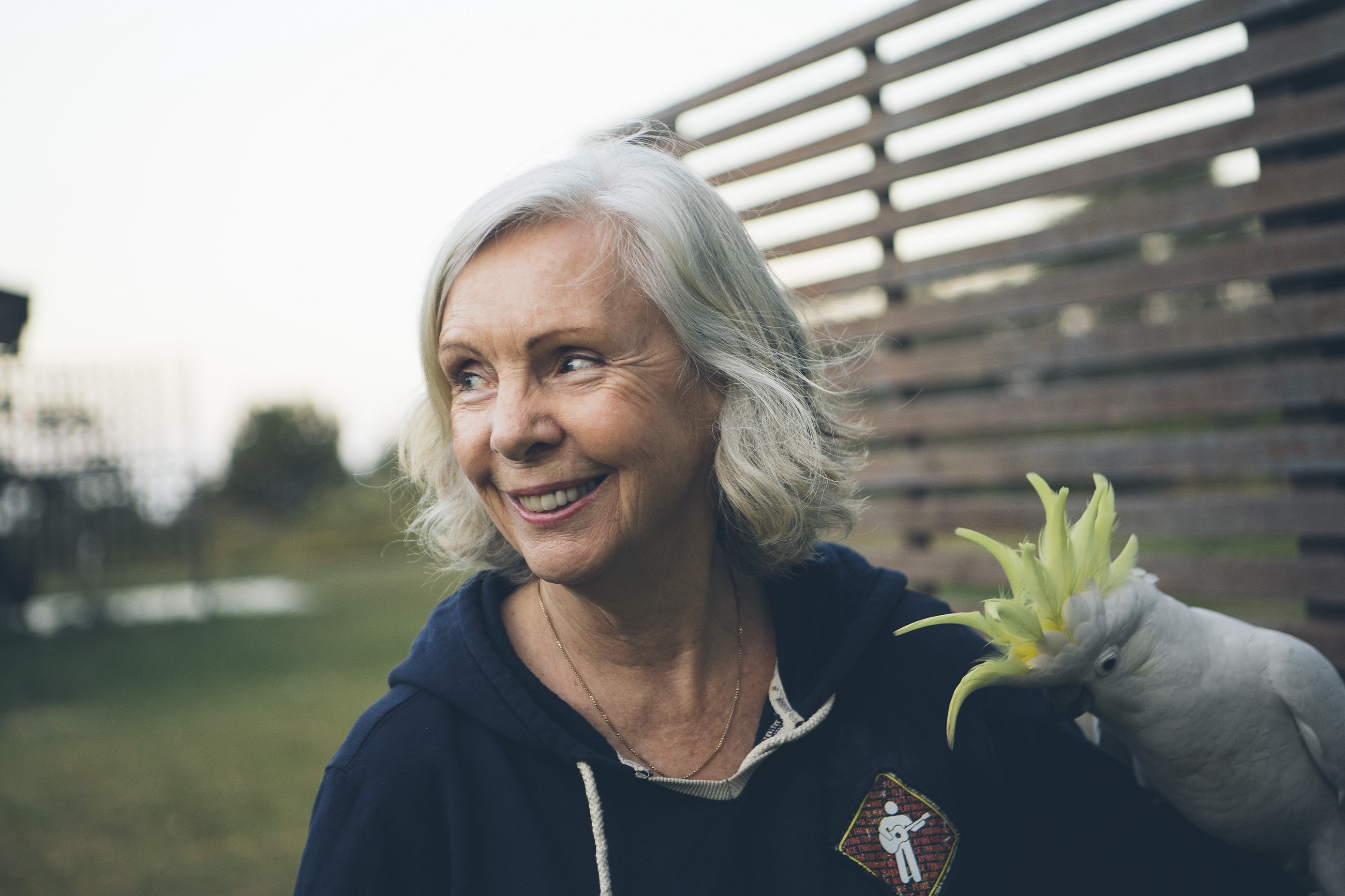
Human activity has resulted in an increasing number of animals hit on roads, attacked by dogs and cats, and losing their homes to habitat destruction. Each distressed animal needs care from a trained and licensed wildlife rescuer or carer, which is why people like Annie are becoming even more critical.
Annie’s home is a natural wildlife sanctuary. Nestled in native bushland, she is trained to care for macropods, echidnas, Sugar Gliders, possums, reptiles (other than snakes), and small mammals, and sometimes has 12 species in care at any one time.
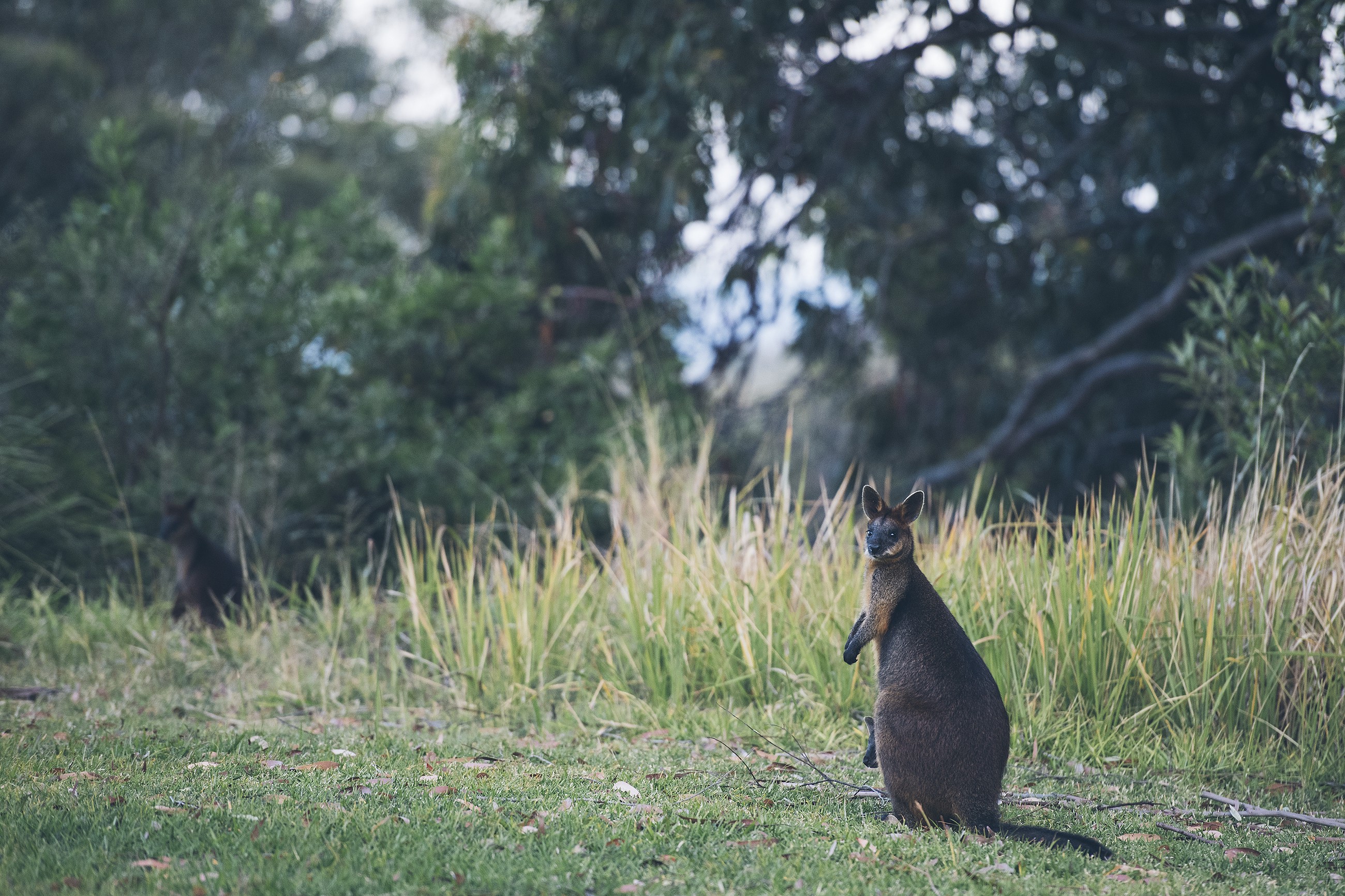
“Caring for animals can take up a lot of time in preparing food, feeding, washing, cleaning enclosures, and collecting foliage. It’s exhausting! When you get a wallaby straight out of it’s mom’s pouch, you’re up feeding it every four hours, so you lose all your social life.”
Annie’s calling has led to many memorable moments, not least of which was the rescue of a wallaby named Harry.
“Harry’s mum was hit by a car, and while he was still in his ‘man-made’ pouch, I got the sense that something was wrong, so I gave him the ‘hop test.’ He took one hop and collapsed on one side. I took him to the vet who x-rayed his leg, and he had broken it right up at the top. The vet performed a three-hour operation and put two pins in. I had three wallabies at the time and got Harry back with the instruction that I was to keep him quiet. So we placed his artificial pouch in a baby cot, so that he could be with the other wallabies but couldn’t hop around. I had to have him like that for six weeks. He survived and every now, and then I see him around, and I think, wow, that’s incredible!”
Sadly, fewer than half the animals called to the Hotline are as fortunate as Harry; this is because injuries many sustain are too severe, particularly when motor vehicles are involved. An important role that wildlife carers like Annie play are to ensure that they are not left to suffer.
Landclearing is another of the biggest threats. Many native species are dependant on tree hollows for shelter from the weather, protection from predators and for breeding and socialising sites.
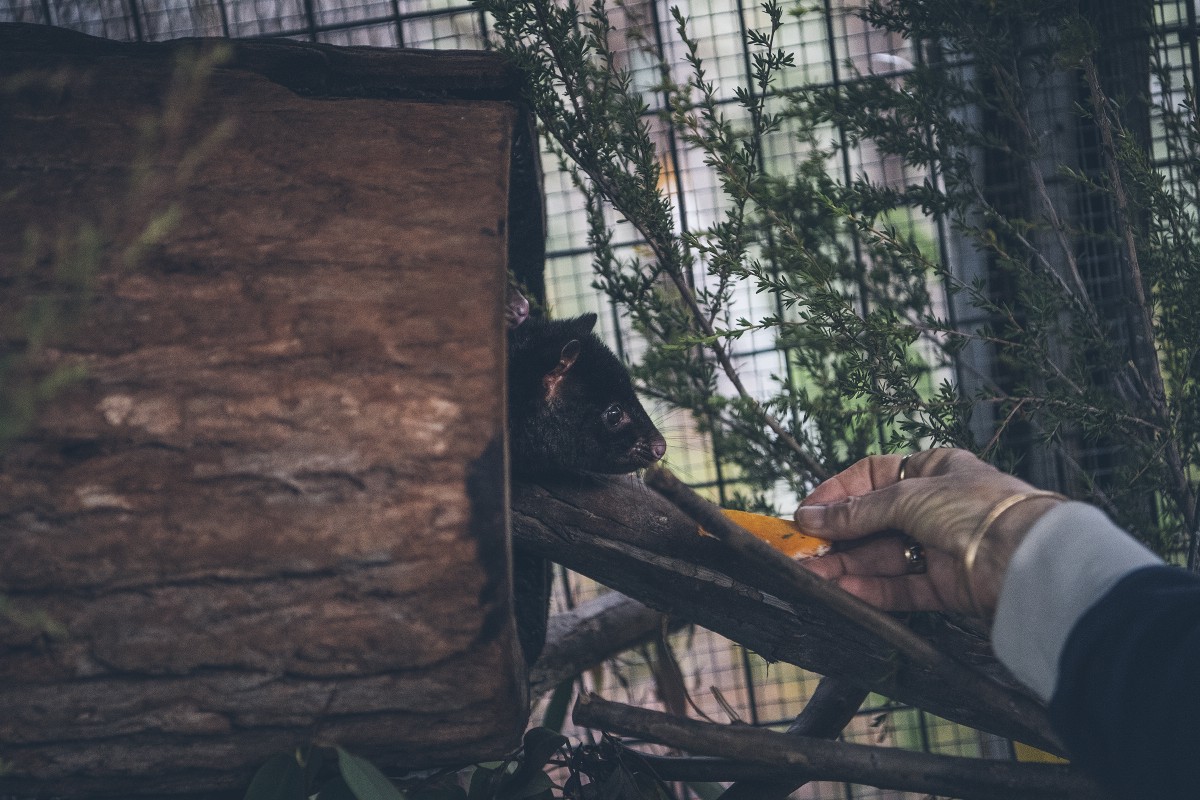
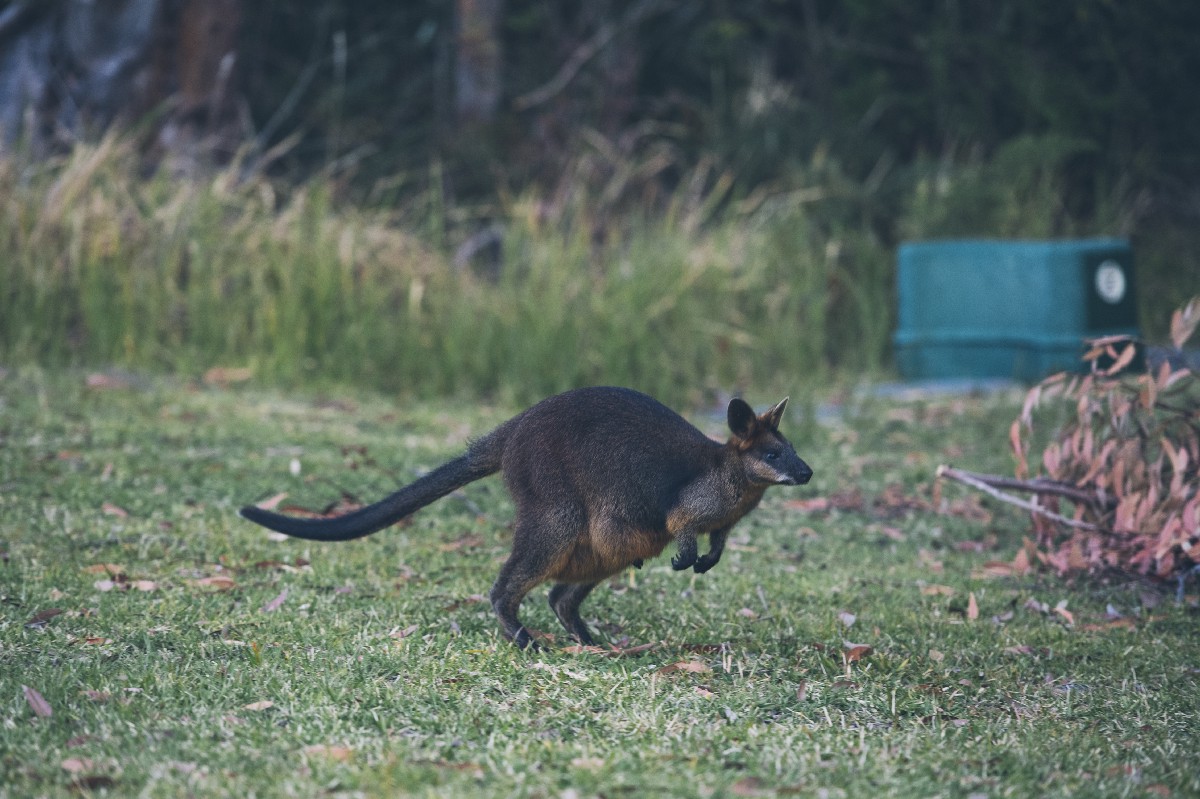
It takes approximately 100 years to form small hollows that are suitable for species such as Gliders and Kingfishers, and almost 300 years for larger hollows required for Owls, Raptors and Black Cockatoos. Displacement and death of animals dependant on these hollows leads to localised extinction of these species and loss of biodiversity.
“I think education is a huge thing. We need people to slow down on the roads, and if they are going to cut down a tree, put nest boxes up so that the animals have somewhere to go!”
A significant amount of the work WIRES does is in education. The organisation hosts training workshops, publishes newspaper articles, and delivers social media messages to encourage the community to protect local wildlife.
Last year WIRES Northern Rivers released, relocated or reunited 3,500 animals, giving these extraordinary creatures a second chance to be returned to the wild.
